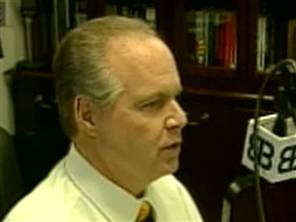The Palestinian prime minister is blaming the U.S. for its money troubles, saying we're blocking various attempts to get money into Palestine to pay employees.
Haniyeh appealed to Arab leaders to face up to the Americans "to stop the siege imposed on the Palestinian people and to stop the political blackmail against the government." He also called on Palestinian bankers to "show the necessary patriotism."
Uh, no. The real problem here is that Hamas refuses to recognize Israel's right to exist, and attempted to justify suicide bomb attacks against civilians as recently as last month. They're free to do that, but such positions carry consequences. And those consequences can be severe when you're almost entirely dependent on Western aid for your economy. But it's silly to think you can bite the hand that feeds you and expect the feeding to continue.
Hamas has two choices: assume a more responsible stance on Israel, or get used to being strapped for cash. Palestinian voters have their own choices: to pressure Hamas to change, to support Hamas and accept the attendant economic problems, or vote them out.
My sympathy is with the voters, because the main alternative -- Fatah -- has failed them repeatedly over the years and is notoriously corrupt. We should show good faith by pressuring Fatah to reform, as hard as we've pressed Hamas to recognize Israel. That way the Palestinians would have at least one reasonable choice instead of two bad ones.
Palestine, Fatah, Hamas, politics, midtopia

